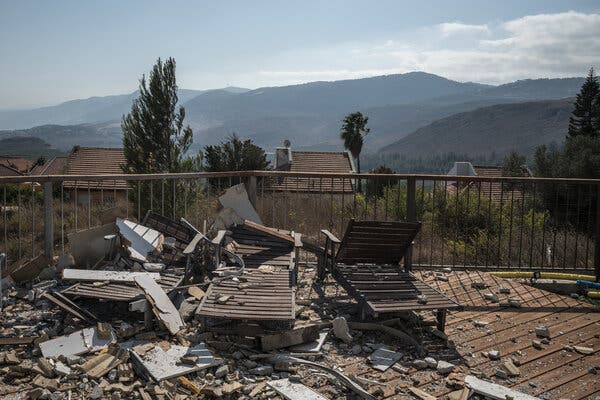In a crisis-racked country where sectarian tensions simmer, many worry that the conflict between Israel and the Shiite militia Hezbollah will end in more destruction for all.

When Hezbollah announced that its longtime leader, Hassan Nasrallah, had been killed in an Israeli airstrike, the talk among many of the group’s Shiite Muslim followers was of defiance and vengeance.
But many others in Lebanon say that this is not their war to fight.
“How is anyone benefiting from what’s going on?” said Rana Khalil, 45, an owner of a small clothing and accessories store in Beirut, the capital. “We’re the ones being injured, we are the ones being killed.”
Hezbollah, the Iran-allied militia, began launching rockets at Israeli positions a year ago. It said it was acting in support of Hamas, the Iran-backed Palestinian armed group that controls Gaza and came under blistering assault after carrying out the Oct. 7 attacks on Israel.
A conflict largely confined to the border region had simmered ever since. But in recent weeks, Israel has unleashed a dizzying series of back-to-back attacks aimed at erasing the threat Hezbollah poses to northern Israel — killing a string of commanders, bombarding large swaths of the country and staging a ground invasion. Hundreds of thousands of Lebanese civilians have fled their homes, and the bloodshed has now reached parts of Lebanon that had been totally calm.
A small Mediterranean country half the size of Vermont, Lebanon has 18 officially recognized religious groups in a population of only 5.4 million. Now, no matter their opinions on Hezbollah, they all find themselves caught between Israel’s onslaught and the weakened militia’s decision to fight on.
Many people are outraged that Hezbollah is dragging Lebanon into a war that can only spell more disaster for their crisis-racked country, already frail after one of the world’s worst economic collapses and years of political paralysis.



